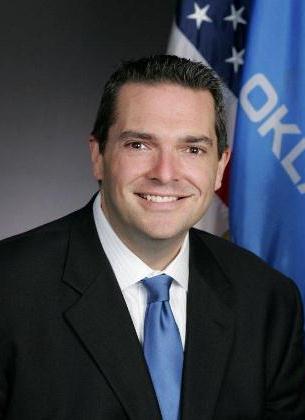In order to provide equal access and equal opportunity to people with diverse abilities, this site has been designed with accessibility in mind. Click here to view
Senate Overhauls Spyware Bill
 Senator Clark Jolley
Senator Clark Jolley
Legislation designed to better protect consumers from identity theft was overhauled by the Senate and is now headed to a conference committee for further refinement. House Bill 2083, by Sen. Clark Jolley, R-Edmond, and Rep. Guy Liebmann, R-Oklahoma City, was approved by the full Senate on Wednesday.
Jolley said changes to the anti-spyware bill made on the Senate side have greatly strengthened the legislation.
“Many Internet users are unaware that when they visit a site, spyware can be automatically downloaded onto their hard drive. Spyware can scan everything on their computer, including private financial information such as bank and credit card accounts, social security numbers, and it can track every single website users visit,” Jolley explained. “At the very least, it can really slow down your computer and cause all kinds of problems, sometimes forcing the owner to make costly repairs. The other danger is it opens up the door for identity theft, cyber-stalking and a host of other crimes.”
While the intent of the legislation as originally filed was to eliminate those problems, the wording of the legislation raised new concerns that anti-spyware software companies could then have full access to the individual’s computer. Jolley said that was unacceptable.
“The Senate version protects personal information and does not allow any exemptions for anyone to obtain it. It also requires software vendors to obtain clear consent for each exemption that cannot be placed in an End User License Agreement (EULA),” Jolley said. “In addition, the Senate version wouldn’t take effect until July 1, 2007, so people would have plenty of time to review it and make sure changes could be made next session if necessary.”
Jolley said 12 states have already passed similar measures, but added they are not as protective of the consumer as the current language in HB 2083. He also asked each Senator to take the final version to any constituents who had voiced concerns about the original bill and get their feedback.
“The public wants us to pass an aggressive attack on those people who plant spyware on our computers—not give certain companies a license to spy,” Jolley said. “That is what we are trying our best to do.”
 Oklahoma Senate
Oklahoma Senate

